This article was medically reviewed by Erik Kramer, DO, MPH. Dr. Erik Kramer is a Board-Certified Primary Care Physician at the University of Colorado. With over 15 years of experience, his clinical interests include obesity and weight management, diabetes care, and preventive care, as well as embracing a holistic approach to primary care. He received his Doctorate in Osteopathic Medicine (D.O.) from the Touro University Nevada College of Osteopathic Medicine and completed his residency at Central Maine Medical Center. Dr. Kramer is a Diplomate of the American Board of Obesity Medicine.
There are 19 references cited in this article, which can be found at the bottom of the page.
This article has been viewed 44,392 times.
Sperm morphology is the shape of a sperm, which is assessed during a semen analysis. Having a higher ratio of abnormal sperm can mean that fewer sperm will be able to fertilize an egg, which may make it harder to achieve pregnancy.[1] Improving sperm morphology along with sperm count (the total number of sperm) and motility (how well the sperm move) is an important part of treating male-factor infertility. There are several strategies you can try to improve sperm morphology including modifying your diet, incorporating supplements, and making lifestyle changes. With a little time and effort, you may get better results on your next semen analysis.
Steps
Using Nutrition
-
1Follow a healthy diet to get more sperm-protecting nutrients. The foods you eat can have a positive or negative effect on your fertility, so it’s important to follow a healthy diet. Avoid processed food as much as possible, such as fried foods, fast foods, and frozen or canned processed foods, including processed meat. Instead, eat more whole foods, such as fruits, vegetables, lean protein, and low-fat dairy products.[2]
- Replace unhealthy foods by adding more fish to your diet.
- Try to eliminate trans fats from your diet. Avoiding fried foods and junk food will help.
- Avoid soy products.
- Limit your consumption of high-fat dairy, such as whole milk and ice cream.
- Eat more walnuts if you aren't allergic to nuts.
Tip: A good rule of thumb is to steer clear of the center aisles and do most of your shopping along the perimeter or outer aisles of the grocery store. This way you will go by the produce, meat, and dairy sections and avoid less healthy aisles, such as the chips, candy, and cracker sections.
-
2Eat 2 to 3 servings per day of foods that are rich in Vitamin C. Vitamin C has been shown to promote the overall quality of sperm, including sperm morphology, so make sure that you eat plenty of vitamin C-rich foods every day.[3] Males 19 and older need 90 mg of vitamin C daily, and they should not exceed 2,000 mg per day. Some good sources of vitamin C include:[4]
- Citrus fruits, such as oranges, grapefruit, lemons, and limes
- Peppers
- Cantaloupe
- Mangoes
- Broccoli
- Cauliflower
- Sweet potatoes
-
3Consume 2 to 3 daily servings of vitamin E-rich foods. Getting enough vitamin E may also help to promote normal sperm morphology.[5] The recommended daily allowance of vitamin E for males 14 and older is 15 mg, so aim for 2 to 3 servings of vitamin E-rich foods every day. Some good sources of vitamin E include:[6]
- Sunflower seeds
- Almonds
- Peanut butter
- Pumpkin
- Asparagus
- Red bell peppers
-
4Get lycopene from 2-3 daily servings of tomatoes and tomato products. Lycopene may help to promote sperm morphology, so it’s important to get plenty of lycopene in your daily diet.[7] The recommended daily amount of lycopene is 10,000 micrograms, which you can get in 2 to 3 servings of tomatoes or tomato-based products.[8] Tomatoes and tomato products are the best source of lycopene, so make sure to include them in your daily diet. Some ways you can get lycopene include:[9]
- Eating raw or cooked tomatoes
- Cooking with canned tomatoes, tomato sauce, or tomato paste
- Drinking tomato juice
-
5Use olive oil instead of other types of fat. One study showed that soybean oil had a negative effect on sperm morphology, but when it was replaced with olive oil, sperm morphology improved. If you tend to use products that contain soybean oil, try switching to products that contain olive oil or use olive oil for cooking and flavoring foods.[10]
- For example, you could replace a soybean oil-based margarine with olive oil or an olive oil-based spread for baking.
- Try drizzling olive oil on salads instead of using a salad dressing that is made from soybean oil.
- Steer clear of any processed foods that feature soybean oil on the ingredients list.
Trying Dietary Supplements
-
1Include a daily multivitamin as nutritional insurance. Taking a daily multivitamin has not been shown to provide a significant improvement to sperm morphology, but it may help you to meet your overall nutritional needs. This may benefit your sperm in the long run by preventing any nutritional deficiencies.[11]
- Look for a multivitamin that contains no more than 100% of the recommended daily allowance of vitamins and minerals.
- You might also consider taking a daily multivitamin formulated for men.
-
2Take a CoQ10 supplement daily. One study showed that CoQ10 supplements benefited sperm morphology, so this might be worth trying. You can get CoQ10 from dietary sources, such as meat, fish, and whole grains, but not in the amount that a supplement can provide. Take the supplement as indicated by the manufacturer.[12]
- Make sure to check with your doctor first if you are taking any other medications since CoQ10 may interact with some medications, such as blood thinners.[13]
Tip: You may be able to find a combination antioxidant supplement that contains vitamins C, E, and CoQ10. This may be more effective for promoting sperm quality than taking CoQ-10 on its own.[14]
-
3Try taking a daily carnitine supplement. Carnitine may also help to promote overall quality of your sperm if you take it daily. Take a 2 gram supplement of carnitine daily. Keep in mind that it will take at least 2 months to see any improvement in your sperm quality from taking carnitine.[15]
- Carnitine is also present in certain foods, such as red meat, fish, and eggs, but not in the amount that a supplement can provide.
- Make sure to check with your doctor first if you are taking any medications.
-
4Include a daily ginseng supplement. Ginseng has long been promoted as a fertility aid since it may help to promote sexual desire. However, it might also improve sperm quality, so taking a daily ginseng supplement may be worth trying.[16]
- Make sure to check with your doctor first since ginseng can interact with certain medications.
- Be aware that ginseng supplements are not regulated. Make sure to purchase your supplement from a reliable manufacturer.[17]
Warning: Use caution when taking supplements and always check with your doctor first if you are taking other medications. Tell your doctor about any supplements you are taking as well.
Making Lifestyle Changes
-
1Exercise regularly to promote healthier sperm. Getting regular exercise will benefit your overall health and this may help to improve your sperm quality over time. Try to find a form of exercise that you enjoy and do it on most days of the week. Ideally, you should get at least 150 minutes of moderate exercise per week, but make sure to break it up, such as by doing five 30 minute workouts per week.[18]
- Try walking, biking, swimming, and taking aerobics classes to see what you like. Finding something you truly enjoy will make it much easier to stick with it.
- Set up an exercise routine for yourself, such as working out at a gym before or after work, or going on walks with your partner after dinner.
-
2Lose weight if you’re overweight. Having a higher than normal BMI may affect your sperm quality, so work on losing weight if you’re overweight or obese. Set a realistic weight loss goal for yourself, such as losing 5 lb (2.3 kg) in 1 month, and work towards you goal by creating a caloric deficit and exercising regularly.[19]
- Work towards achieving a healthy BMI as your ultimate weight loss goal. Check with your doctor if you are unsure about what your goal should be.
-
3Quit smoking if you’re a smoker. Smoking may increase the incidence of male-factor infertility, by lowering sperm counts, reducing motility, and increasing the number of abnormally-shaped sperm. By quitting smoking, you may be able to drastically improve the quality of your sperm. If you smoke, talk to your doctor about your options for quitting. You may be a good candidate for a smoking cessation aid and your doctor can recommend other resources for quitting.[20]
- For example, you might take a medication to help you quit, use nicotine replacement patches, gum, or lozenges, or try cognitive behavioral therapy to quit.
-
4Drink alcohol in moderation if you drink. Drinking in excess may affect a man’s fertility by reducing his overall sperm count and affecting its quality. Therefore, if you’re trying to improve your sperm morphology, it’s best to abstain from alcohol whenever possible and limit your intake when you do drink. Try not to have more than 2 drinks. One drink is 12 fl oz (350 mL) of beer, 5 fl oz (150 mL) of wine, or 1.5 fl oz (44 mL) of spirits.[21]
- If you don’t drink alcohol, don’t start.
-
5Get checked for STIs and practice safe sex if you're not monogamous. Contracting an STI (sexually transmitted infection), such as chlamydia or gonorrhea, can have long-term effects on your fertility. If you’re not in a monogamous relationship, make sure that you are using a condom every time you have sex and getting tested regularly for STIs.[22]
- If you and your partner are monogamous, you may still want to get tested for STIs to ensure that this is not impeding your fertility.
Tip: Check with your doctor to see if there are any other lifestyle changes you could make to improve your sperm morphology. You may benefit from a simple change such as switching from boxers to briefs to help promote air circulation around your testicles.
References
- ↑ https://lomalindafertility.com/infertility/men/sperm-morphology/
- ↑ https://www.uchicagomedicine.org/forefront/health-and-wellness-articles/dont-make-the-mistake-of-letting-a-diet-kill-sperm
- ↑ https://www.ncbi.nlm.nih.gov/pubmed/17004914
- ↑ https://www.ncbi.nlm.nih.gov/books/NBK225480/
- ↑ https://www.ncbi.nlm.nih.gov/pmc/articles/PMC5203687/
- ↑ https://www.hsph.harvard.edu/nutritionsource/vitamins/vitamin-e/
- ↑ https://www.ncbi.nlm.nih.gov/pmc/articles/PMC4023371/
- ↑ https://www.health.harvard.edu/blog/lycopene-rich-tomatoes-linked-to-lower-stroke-risk-201210105400
- ↑ https://www.pbrc.edu/training-and-education/pdf/pns/PNS_Lycopene.pdf
- ↑ https://www.tandfonline.com/doi/full/10.1080/10942912.2017.1357044
- ↑ https://www.reproductivefacts.org/news-and-publications/patient-fact-sheets-and-booklets/documents/fact-sheets-and-info-booklets/sperm-morphology-shape-does-it-affect-fertility/
- ↑ https://www.ncbi.nlm.nih.gov/pmc/articles/PMC5203687/
- ↑ https://www.stlukes-stl.com/health-content/medicine/33/000950.htm
- ↑ https://www.ncbi.nlm.nih.gov/pmc/articles/PMC5203687/
- ↑ https://ods.od.nih.gov/factsheets/Carnitine-HealthProfessional/
- ↑ https://www.ncbi.nlm.nih.gov/pmc/articles/PMC3861174/
- ↑ https://www.drugs.com/mtm/ginseng.html
- ↑ https://www.ncbi.nlm.nih.gov/pmc/articles/PMC5675222/
- ↑ https://www.heraldopenaccess.us/openaccess/sperm-motility-and-morphology-is-affected-by-body-mass-index
- ↑ https://www.reproductivefacts.org/news-and-publications/patient-fact-sheets-and-booklets/documents/fact-sheets-and-info-booklets/sperm-morphology-shape-does-it-affect-fertility/
- ↑ https://www.ncbi.nlm.nih.gov/pmc/articles/PMC5504800/
- ↑ https://www.ncbi.nlm.nih.gov/pmc/articles/PMC7558888/
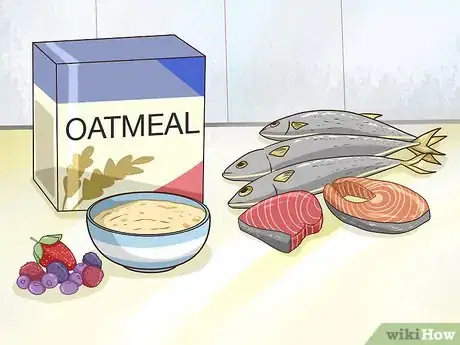

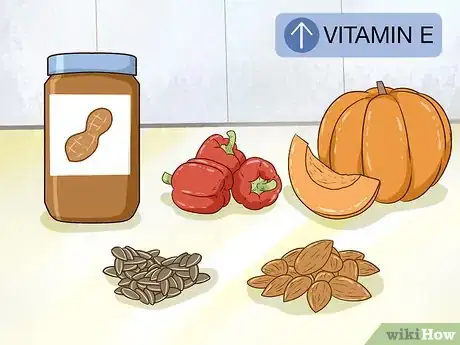
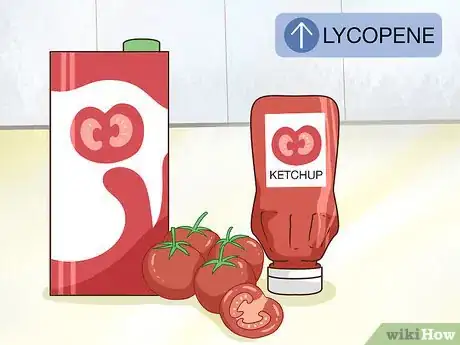
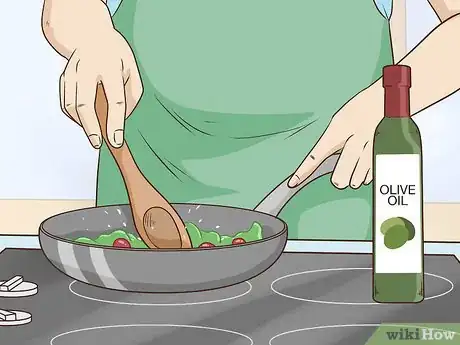
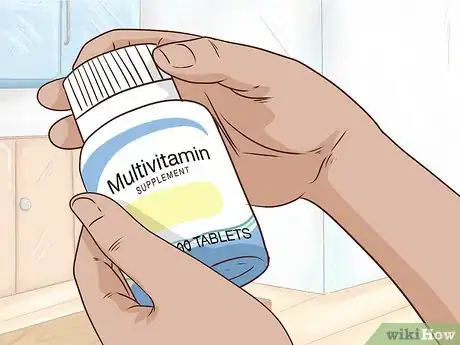
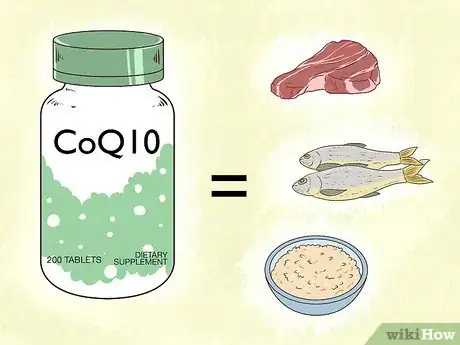
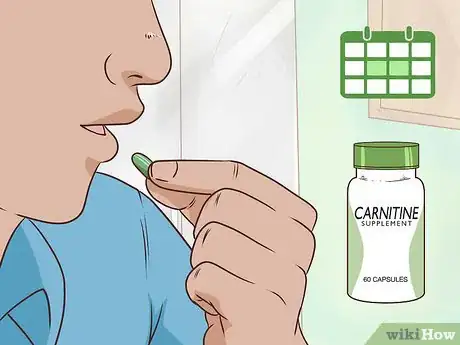
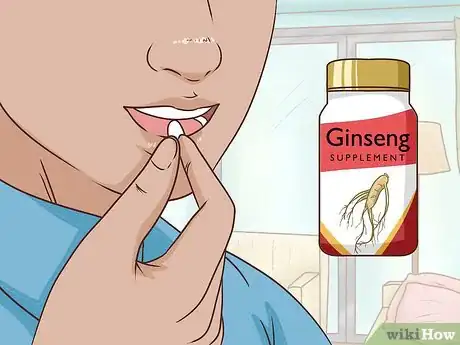
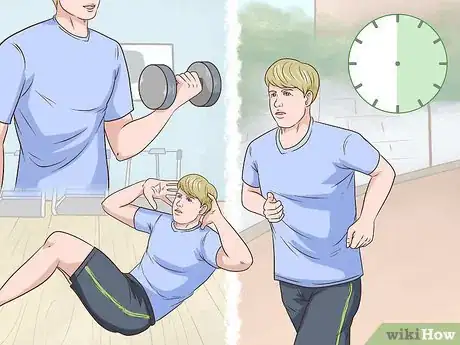


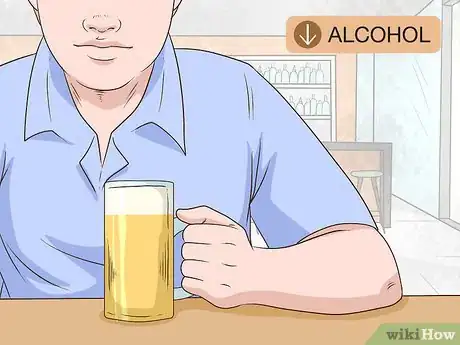
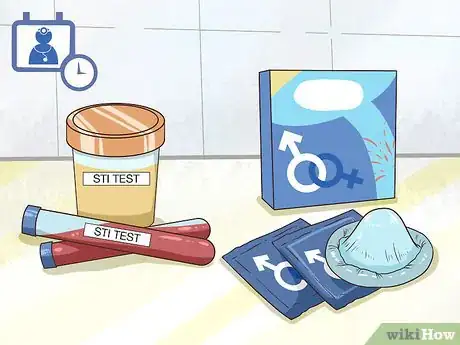

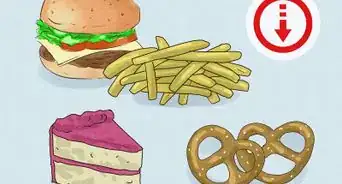


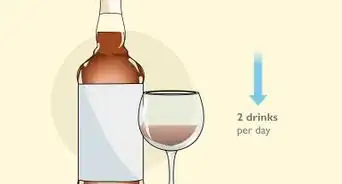
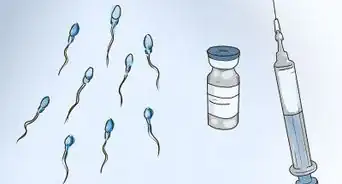



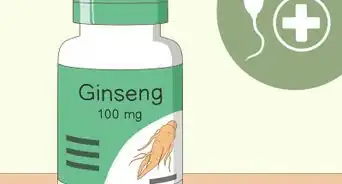








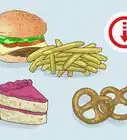





































Medical Disclaimer
The content of this article is not intended to be a substitute for professional medical advice, examination, diagnosis, or treatment. You should always contact your doctor or other qualified healthcare professional before starting, changing, or stopping any kind of health treatment.
Read More...